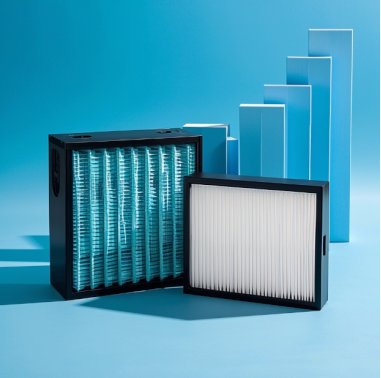In our daily lives, air filters silently safeguard our respiratory health. They purify the air and ensure the quality of our lives, playing a significant role.
Its working principle mainly relies on physical filtration and adsorption. The common HEPA filter is made of fine intertwined fibers. For particulate matter with a diameter larger than 0.3 micrometers, its filtration efficiency can exceed 99.97%, capable of intercepting impurities such as dust and pollen. The activated carbon filter, on the other hand, utilizes its rich microporous structure to adsorb gaseous pollutants like formaldehyde and benzene. Using it in newly decorated rooms can alleviate the harm caused by harmful gases.
In different scenarios, air filters are of crucial importance. In households, during hazy days, they can filter out haze particles, and when there are allergy sufferers, they can filter out allergens, keeping the indoor air fresh. In hospital operating rooms and laboratories, they strictly control microorganisms and dust, ensuring the smooth progress of surgeries and experiments. In the industrial field, electronic factories and chemical plants rely on them to guarantee product quality, protect the health of workers, and reduce environmental pollution.
Nowadays, intelligent air filters have emerged. Equipped with sensors, they can monitor air quality in real-time and automatically adjust the working mode according to the data. What’s more, they can be remotely controlled through mobile phone apps. In the future, air filters will continue to be upgraded to protect our fresh air.
Post time: Apr-02-2025


